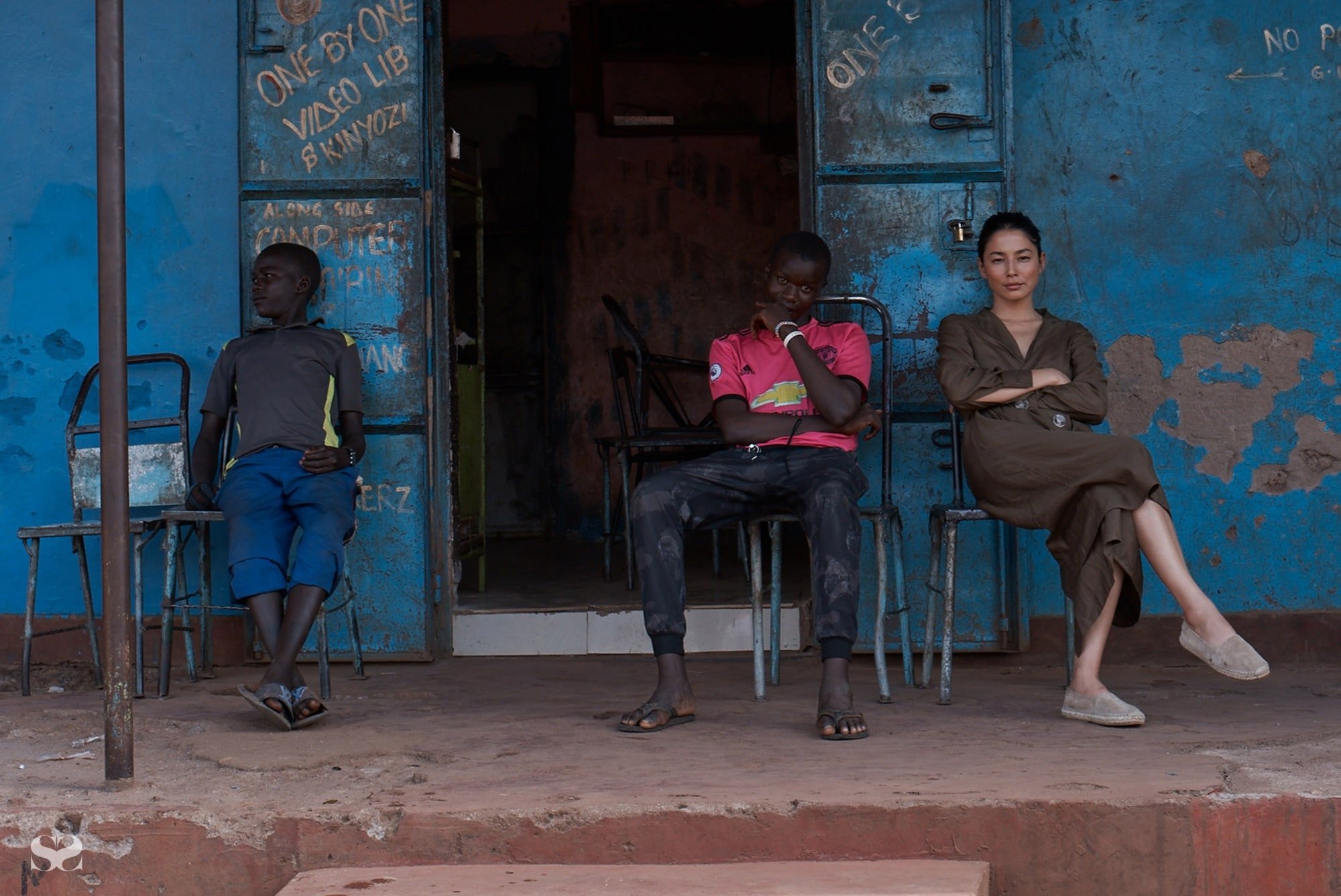
Sitting atop a hotel roof in Entebbe, overlooking Lake Victoria as the sun sets, late 90s and early 00s R‘n’B playing over the sound system as a waiter brings you a fresh pineapple juice, you couldn’t be anywhere else in the world but Africa. Here in Uganda the sounds are distinct. The view of the streetscape and landscape beyond, unlike anything you have seen before. The people and their culture so uniquely their own. And there is really nowhere in the world you would rather be.
In Uganda you are met with joy and hospitality at every turn. The people have an openness and a happiness that radiates. There is a certain self-assurance that is disarming. “You are welcome” the common greeting everywhere you go. It’s strange how moving this is to hear. Here, the people have power in their dance and strength in their song.
“This is my third trip with [World Vision]. I went to Peru, India and now Uganda,” explains Jessica Gomes. The model, actor and Equal Beauty founder became an ambassador five years ago when she was “at a place in my career where I felt like I needed to give back – I wanted to use my voice for good”.
For this trip, we’ve been invited along for the journey – and are about to begin a one-week expedition charting the NGO’s work across the country.
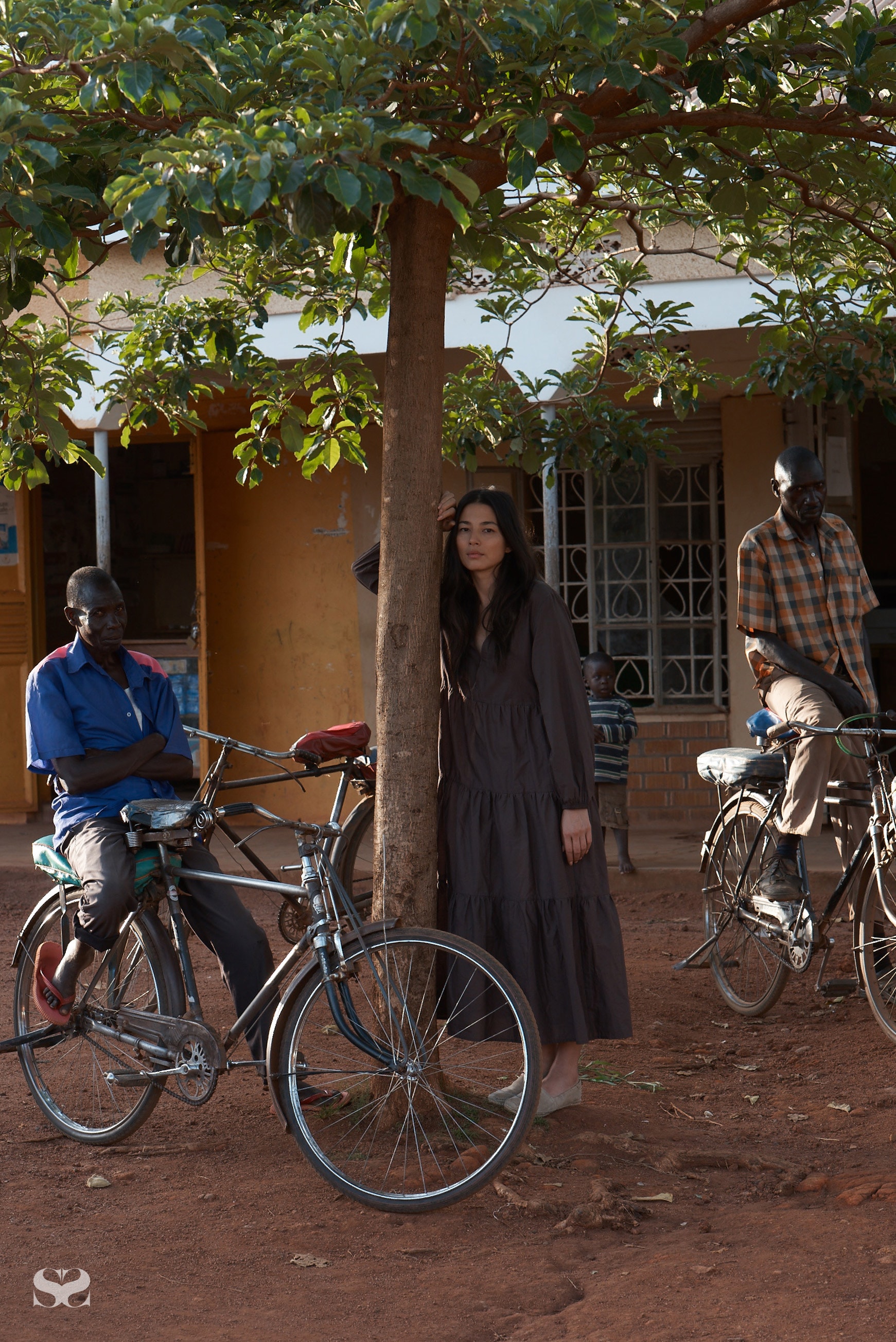
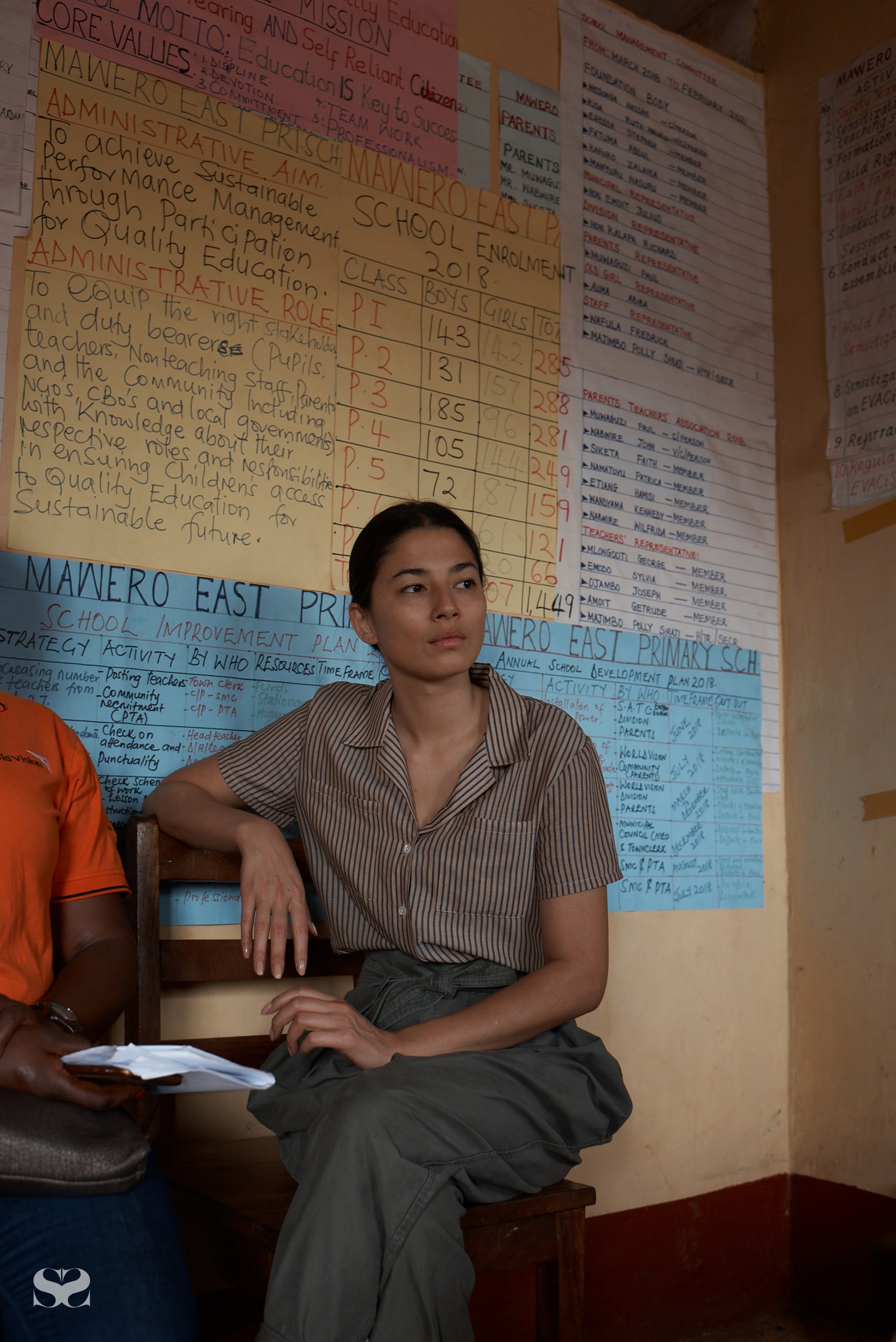
“It’s important for me to empower young girls, because I think it creates more equilibrium in society.”
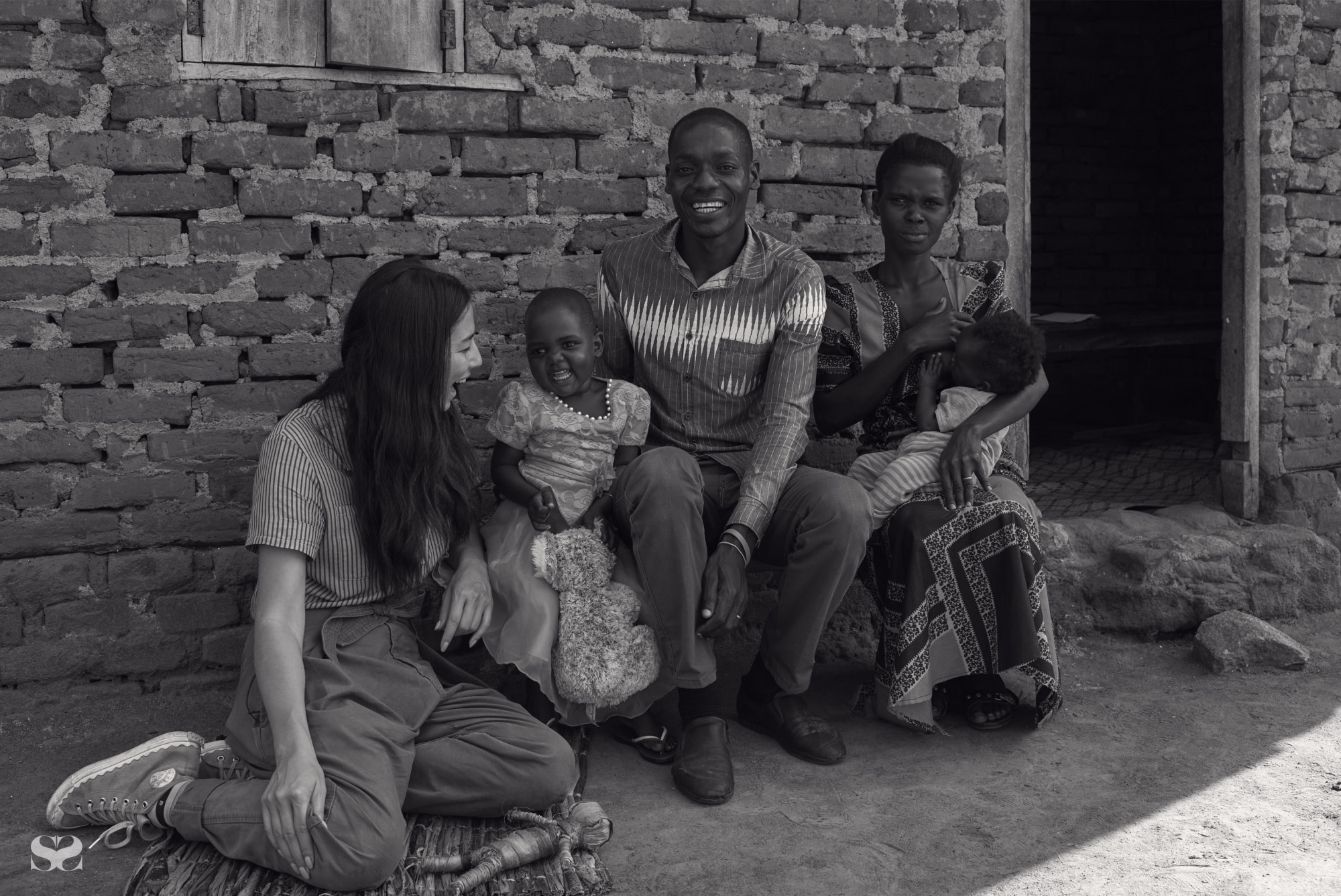
It’s not unusual to feel that the magnitude of the world’s problems are impossible to detangle. It’s easy to be overwhelmed by the news. Can we even help? Will it make a real difference? The fact is that in matters so far from our own, both in circumstance and distance, often we physically can’t. What we can do is give a tiny portion of our incomes to the people who can; the local staff and community volunteers that know their country and community’s own needs. The people who know firsthand the realities of life – in both its beauty and its hardships. Who know what the schools, the hospitals, the communities, villages, families and individual children need most.
The Ugandan arm of World Vision has been present since 1986, working to strengthen communities, build social and health facilities and influence government policy. The complexity of the issues at hand and the simplicity of the solutions are stark in contrast but equal in measure.
While there are no quick fixes and progress is made in increments, with 82.4 per cent of all World Vision donations and sponsorship money going directly to the field, it is easy to see the changes underway in the communities.
Funding for a community literacy centre run by local volunteers means children learn literacy and numeracy through play and are better equipped when they enter the school system. And – while many mothers have the access to healthy foods – the provision of nutritional guidelines and cooking techniques can mean the difference between a malnourished family and a healthy one. In co-operation with the community, World Vision has established a Lead Mothers group to in turn provide education to those around them.
The women’s health facility in the town of Busia, founded by World Vision in 2012, saw 50 women give birth there the year it was established. Yet in March 2019 alone it assisted 214 women to give birth, eight in the 12 hours since we had arrived at the facility. It’s also a place where HIV-positive women can receive medicine that prevents the disease being passed down to their children, where mothers can have their children vaccinated and guidance on early childhood care can be found.
Money channelled into training local teachers in child protection means they can recognise the signs that a 14-year-old girl is being lured into marriage and, working together with her family, can implement steps to bring her back home and to school.
Sadly it is not uncommon for girls in Uganda to drop out of school when they begin menstruation. But simply installing toilet blocks on campuses helps to mitigate this trend, allowing young women to further their education and ensure their ongoing independence.
Of her decision to sponsor a child, Gomes explains that first, “I really wanted to see what was happening in these communities and what World Vision was doing to help ... how the money was being filtrated into the business and how it all worked.”
From there, it was a natural progression to sponsoring Loy, a two-year-old Ugandan girl. “It’s important for me to empower young girls,” Gomes tells. “Because I think it creates more equilibrium in society.”
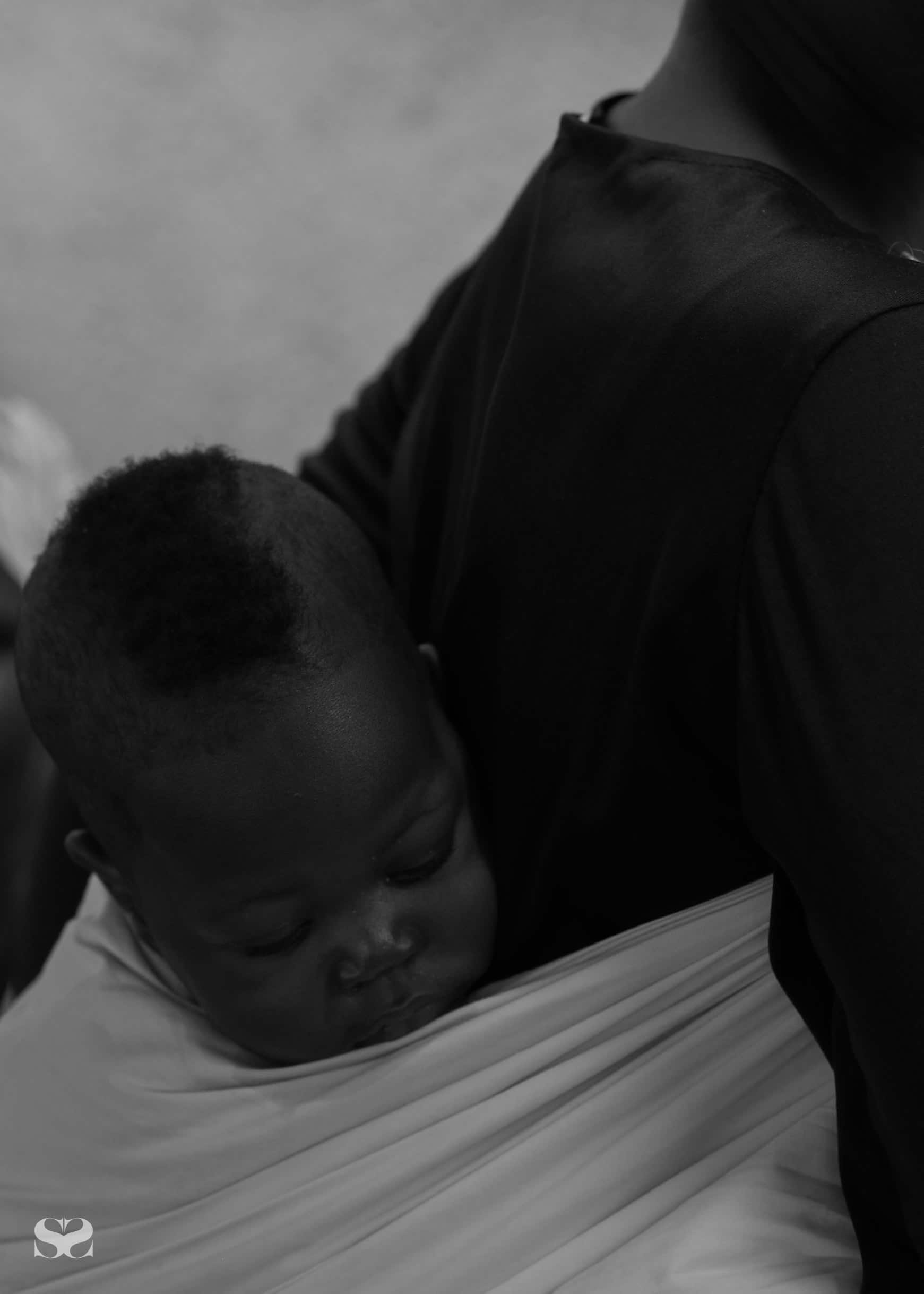
Loy lives with her father Andrew, mother Harriet and baby sister Praise, in the countryside surrounding Busia, so close to the Kenyan border that we hop between countries in search of fans to get us through the kind of hot nights we so rarely experience at home. Standing on Loy’s family property you’d be forgiven for thinking someone had pressed play on a rainforest soundtrack, such are the natural sounds that permeate the air. Bulging jackfruits grow on skinny trees and are so sweet they taste like candy. The lush greenery is in stark contrast to the red earth that produces avocados, potatoes and yams in the fields that surround the family’s home.
Meeting Loy and her family has been on the cards since Gomes began sponsoring her just over a year ago and the anticipation has been high in the few days since we arrived in Uganda. “I just wanted to see how things are going and how they were doing ... I was really surprised at the connection I had right off the bat with them,” recalls Gomes. “They were my friends … They are such a sweet family. That really moved me.”
The young family is tightknit – jokes flow easily as do silly gestures to elicit a laugh. Gomes explains that “meeting [Loy’s] father was really touching because I could see he was a really good man, and that was very comforting to me to know that Loy has a good male role model in her life.
“I got very emotional when I sat in the living room with her family because I could feel the love and the realness,” explains Gomes. “That was the one thing that I think made me feel so full… I felt really even with them. It was a really beautiful moment.”
That this two-year-old girl in her pink dress – who loves to play soccer, whose unimpressed face is rivalled by none but whose tongue wiggles with glee when she laughs; who plants kisses on her baby sister’s lips when she thinks no one is paying attention – could have a better childhood, a healthier home and a future full of potential for only $48 per month seems worth it, no?
Loy will grow up to attend local schools and then ... her future is hers to decide.
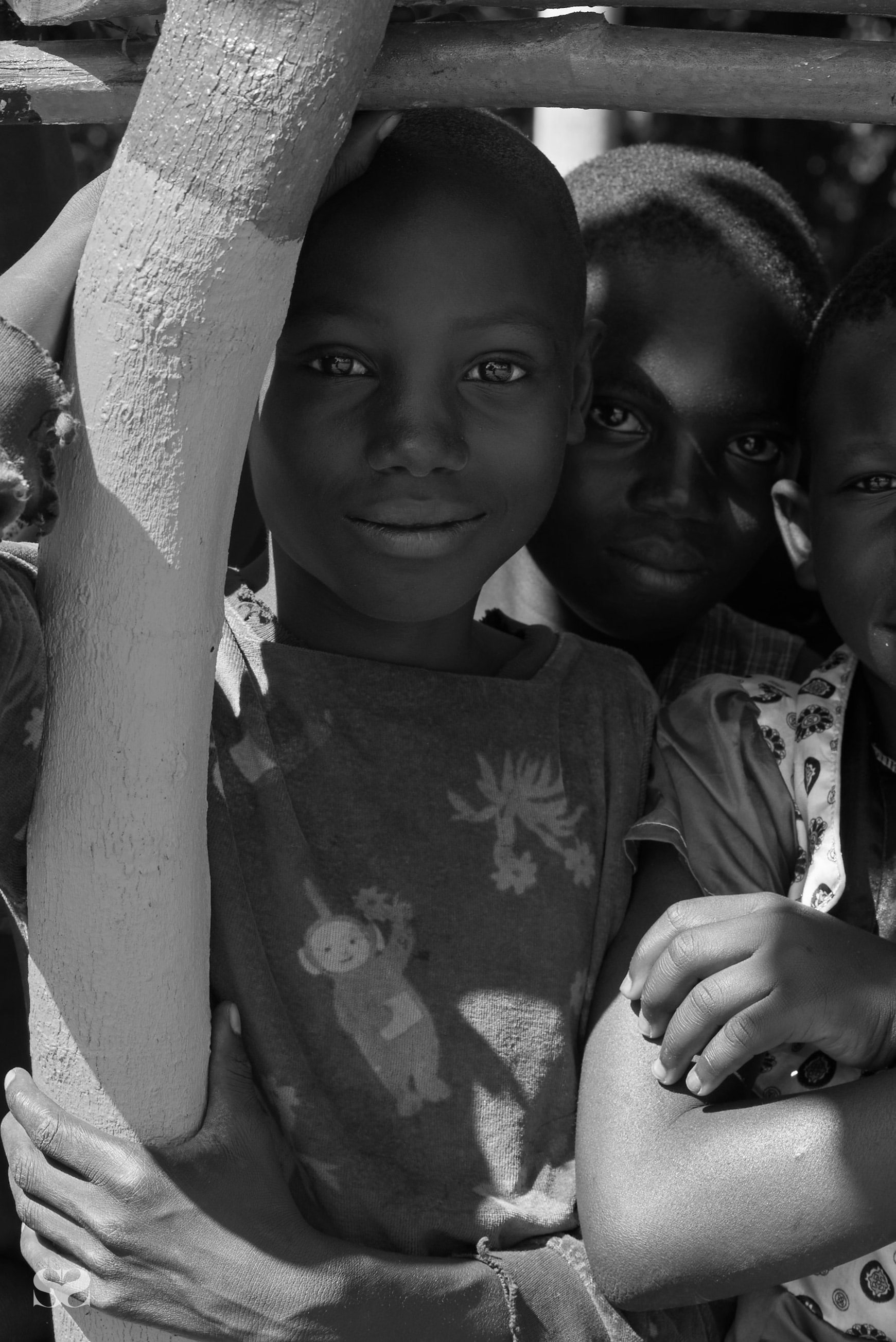
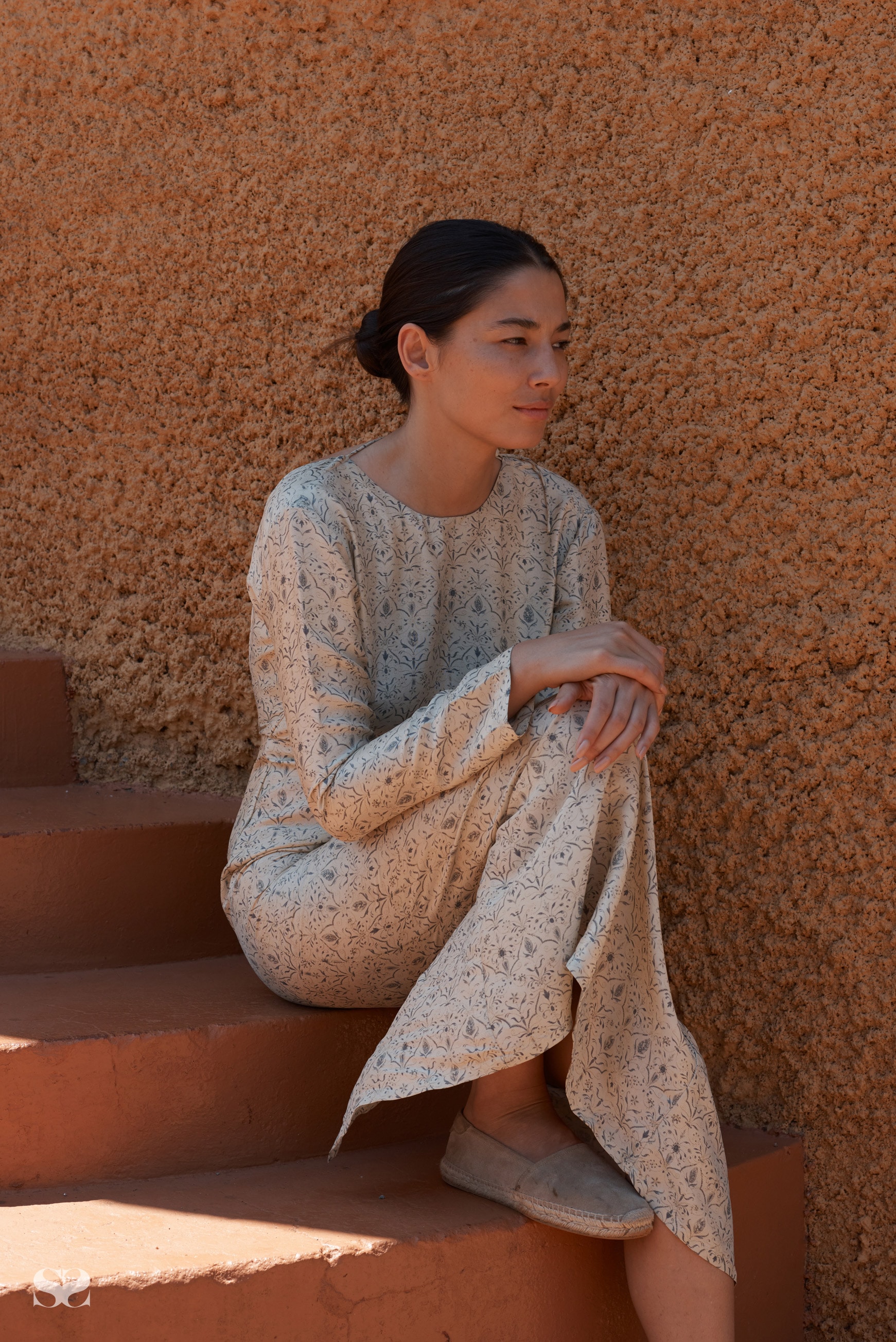
Since her sponsorship, Loy’s mother has given birth to her second daughter in the care of the local maternity clinic. Harriet and Andrew have grown crops surrounding their home to feed their family and sell at markets as a source of income. They have planted a community garden, where they hold lessons on agricultural techniques for the rest of the community. Loy will grow up to attend local schools and then ... her future is hers to decide.
When the problems are so large in scale it is easy to disassociate from them. ‘Empathy fatigue’ among Western societies is common; it is also just as easy to blind ourselves to how simple the solutions, at times, can be. But we all have something to give. We may not be capable of giving our time, yet we may be able contribute money. Our opinions may not be needed but our resources can help.
We can hear stories and acknowledge pain. We can witness life and vitality and receive joy, and we can know that there is little but circumstance that separates us all. We can donate in an attempt, however small, to even the scales. And, as we experienced in Uganda, we can realise that we will learn more from the people than we could ever offer in return.
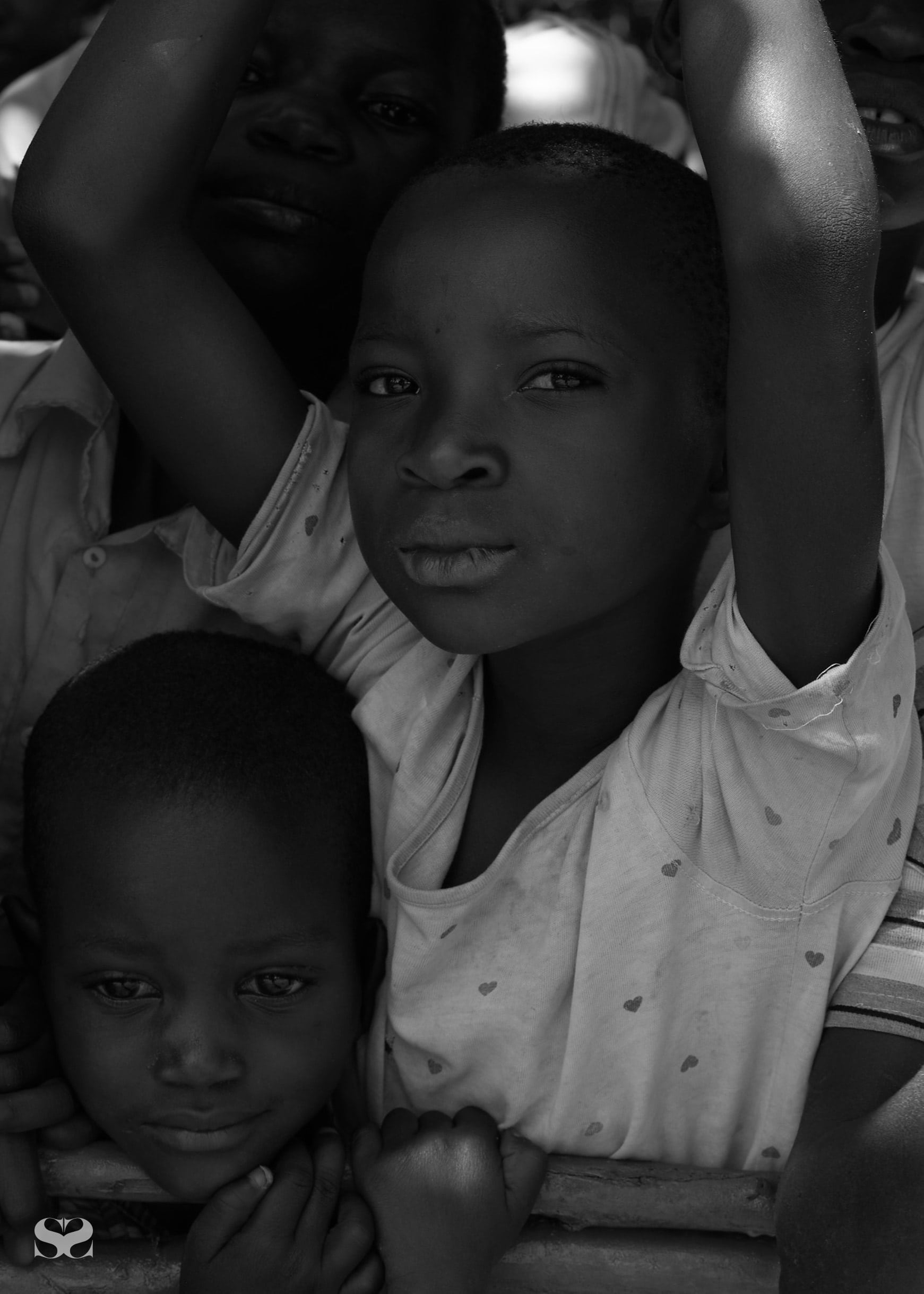
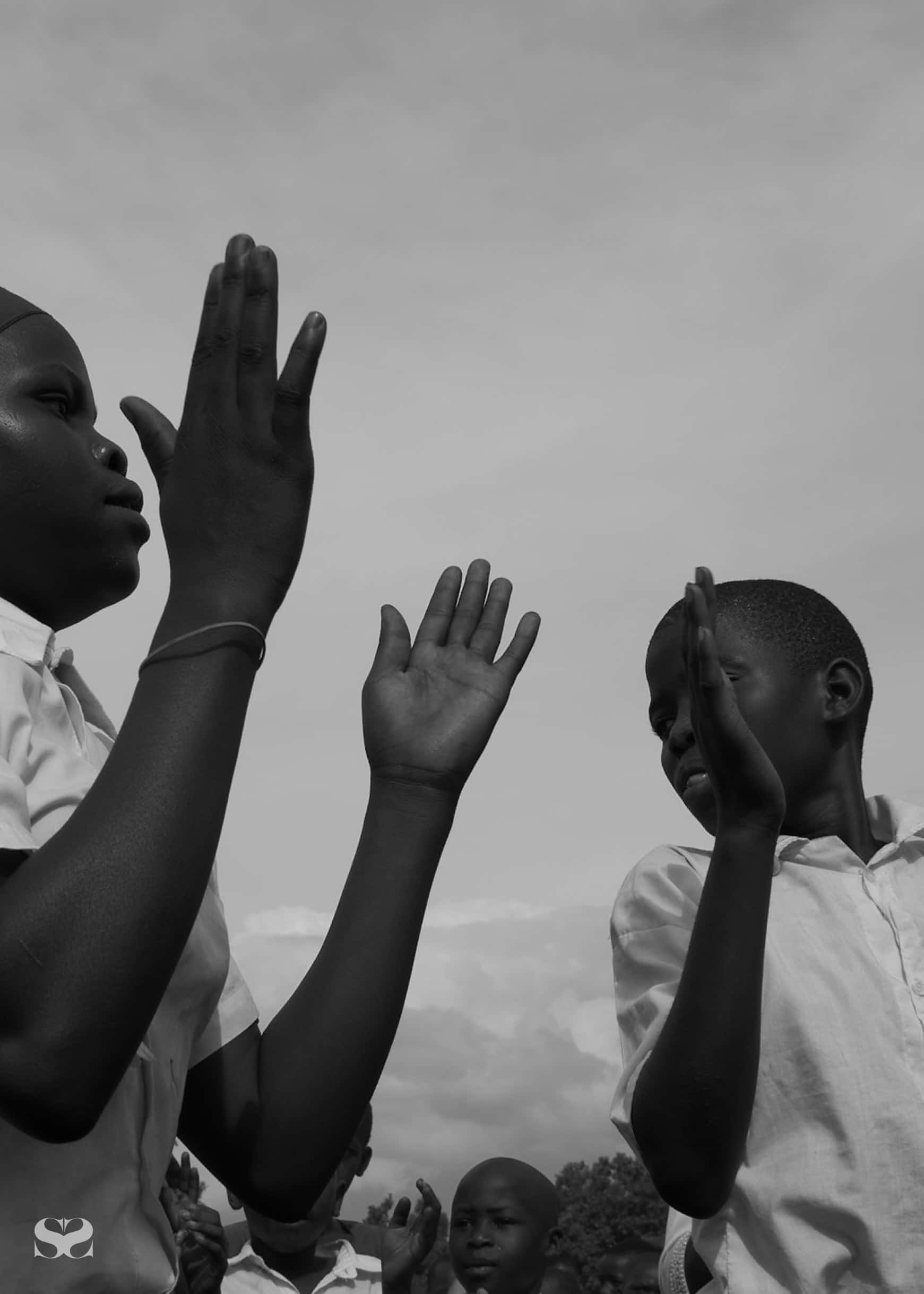
“Seeing what World Vision does, [I feel] there are good things happening in this world, there are good people,” Gomes explains. “There is so much fear in our culture and it’s depressing but getting out there, doing community work and helping other people has made me a happier person. I feel like it’s been life-changing.”
Visiting places so far from our own, experiencing cultures so different from what we know can elicit an indiscernible shift in self that simultaneously feels seismic. When asked what experiences of Uganda and its culture have impacted her most, Gomes exclaims, “everything! They celebrate with song, dance, and community. I just felt this sense of freedom here … This sense of happiness… There’s beauty everywhere here in this country and the children.”
Realising such small efforts can have big, real-life impacts can certainly shift our perspective. Shake us free from our own neuroses and the things we once thought were important. “I can help people on this planet Earth and I can use my voice, which is so easy now with social media, and I can use my profile for good,” Gomes tells of how the trip has impacted her. “Also, all of my problems, that I thought were problems, have completely vanished.
“My biggest lesson is that we are all the same as human beings. We all want the same things. We all have human rights we all have the right to a good life. To good food, clean water, living in a safe environment, to wanting our children to be healthy and go to school and have opportunities. I’ve really learned the simplicity of what life is about,” contemplates Gomes.
“I think in our world I can complicate things or care too much about what other people think and I can create these boundaries for myself that make me feel stuck,” she tells. “But the lesson I got from this trip is that this doesn’t mean anything. It’s taken me back to what the truth is and what the truth of life is – and it’s quite simple. It’s all about love and doing the right thing and being compassionate and living a healthy, free, safe life.”
Help change the life of a child by visiting worldvision.com.au and sponsoring a child today.



